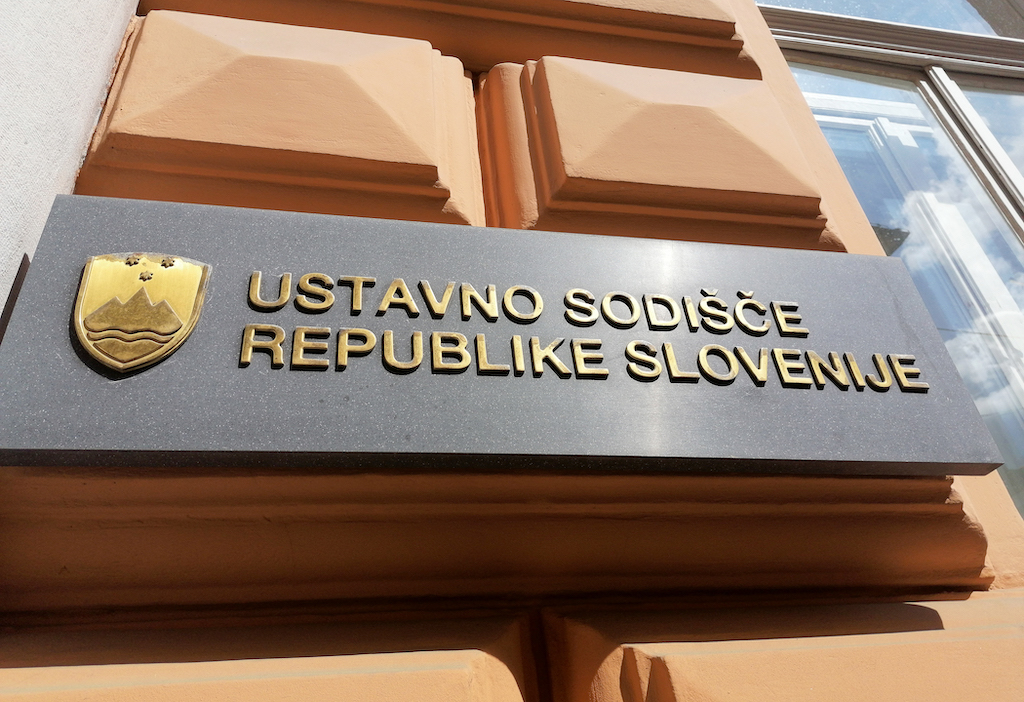By: Andrej Žitnik (Nova24tv.si)
The neurosis on the part of the government is getting worse because of the debacle with the Broadcasting Act. They had no idea that the Constitutional Court, which they perceived as their own as well as Pop TV and Odlazek’s octopus, would temporarily stop the implementation of the law. However, judges Knez and Accetto, who are otherwise considered to be in the left part of the political spectrum (Accetto even helped write Cerar’s SMC programme), were not ready to destroy their legal careers by setting fire to an obviously unconstitutional law – this is especially clear from the diction of Knez’s separate opinion from which it is clear that he will not change his opinion. Now the bloody battle at the oesophagus begins. The government threw down the gloves.
For quite some time, unofficial information leaked to the public that the National Assembly was supposed to submit a proposal to the Constitutional Court to exclude constitutional judge Klemen Jaklič from the constitutional review of the amendment to the law on RTV Slovenia. Investigative journalist Bojan Požar first reported on it, then Večer and Siol. Now it really happened. The National Assembly has officially submitted a proposal to the Constitutional Court for the exclusion of Judge Jaklič from the constitutional review of the amendment to the Law on Radio-Television Slovenia (RTVS).
Jaklič is said to have expressed his opposition to ZRTVS in an interview
In fact, in the 2005 referendum campaign, Jaklič advocated legal solutions that were changed by the law, which is the subject of a constitutional review, which is why doubts arise about his impartiality, the proposal states.
Rumours had already appeared earlier that the reason for the request for exclusion was also the fact that on March 20th, in a broadcast on Radio Ognjišče, Jaklič objected to the content of the amendment to the law on RTV Slovenia, the review of which is still pending before the Constitutional Court.
Otherwise, the reason is quite creative and unusual in its own way, since judges are not prohibited from expressing their opinion on the legislation they are reviewing (after all, the three female judges who voted against the suspension of the ZRTVS) have repeatedly clearly expressed their support for the law in their statements and separate opinions.
A retaliatory measure?
Some time ago, constitutional judge Rok Čeferin removed himself from the decision-making process, as his law firm Čeferin cooperated contractually with the public institution RTV Slovenia. It appears that the calls for the expulsion of Jaklič are some kind of retaliatory measure after the first signatory of the petition for the review of the constitutionality of the amendment to the Act on RTVS, Peter Gregorčič, submitted a proposal to the Constitutional Court to exclude Judge Neža Kogovšek Šalamon from the constitutional review of the amendment. According to TVS, the constitutional judge supposedly additionally works at the Peace Institute, which participated in the referendum campaign on the amendment of the law.
Should Accetto be recused?
The President of the Constitutional Court, Matej Accetto, who has clearly expressed his political affiliations in the past (as already mentioned, he wrote the programme of Cerar’s newly founded SMC at the time), is a judge who should, in fact, have to recuse himself. He met with European Commissioner and Vice-President of the European Commission Vera Jourova, a passionate supporter of Golob’s Law on Broadcasting. Jourova has said in the past that the new ZRTVS is a step towards media freedom in the country, so she clearly defined herself as supporting the law, regardless of the fact that European MP Romana Tomc explained to her in detail several times why the law is in fact a very cunning move by the coalition government, that through the so-called civil society and the guild organisations loyal to it, they are permanently subordinating the public institution RTV Slovenia. Jourova claimed that they did not talk about the law, but at the same time she could not say what they talked about. On the other hand, even during the same visit to Slovenia, where she met with Accetto, she claimed that the future of RTV Slovenia depends on the decision of the Constitutional Court (on the constitutionality of ZRTVS) which some in Slovenia interpreted as a threat that an “incorrect” decision would destroy the public institution.
In the case of removal of constitutional judges, the provisions on the removal of ordinary judges (Act on Civil Procedure) apply analogously. It is a legal principle that true objectivity and unburdenedness of judges requires not only subjective but also objective impartiality of judges (that is, the appearance of impartiality of the judge is also created). Matej Accetto met with a European politician who is a defender of the law. By this, he should also understand that his appearance of impartiality is irrevocably over. Already from the point of view of the appearance of creating pressure by unelected European politicians.

